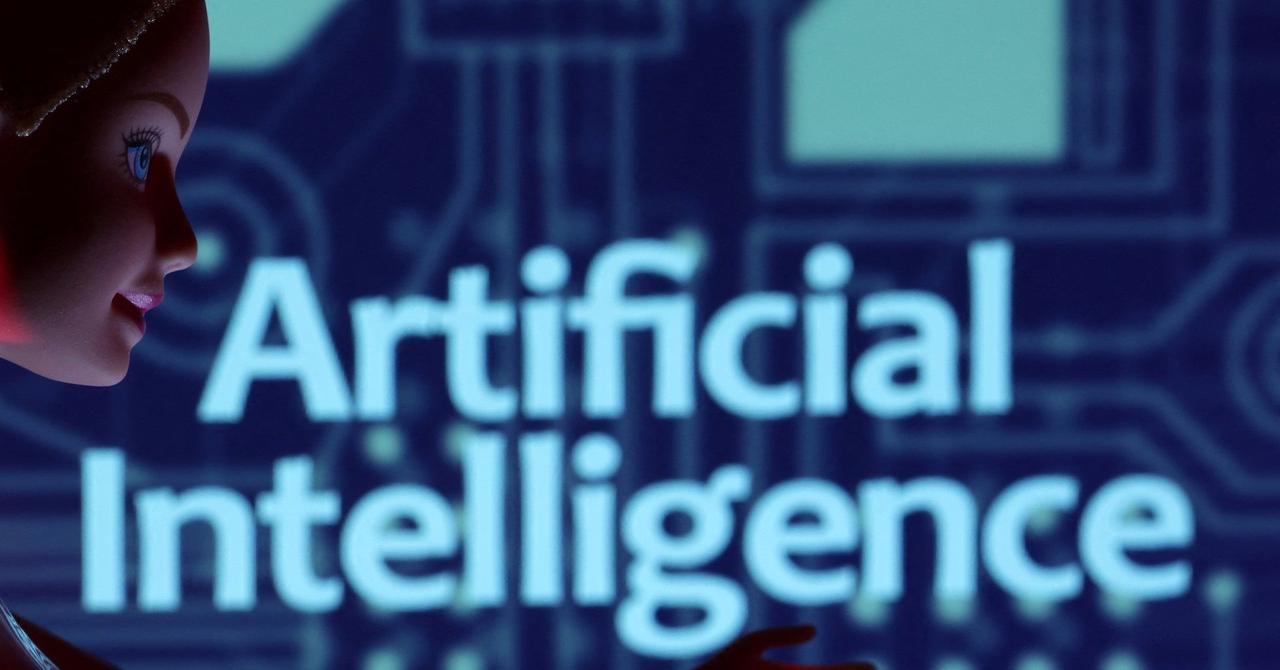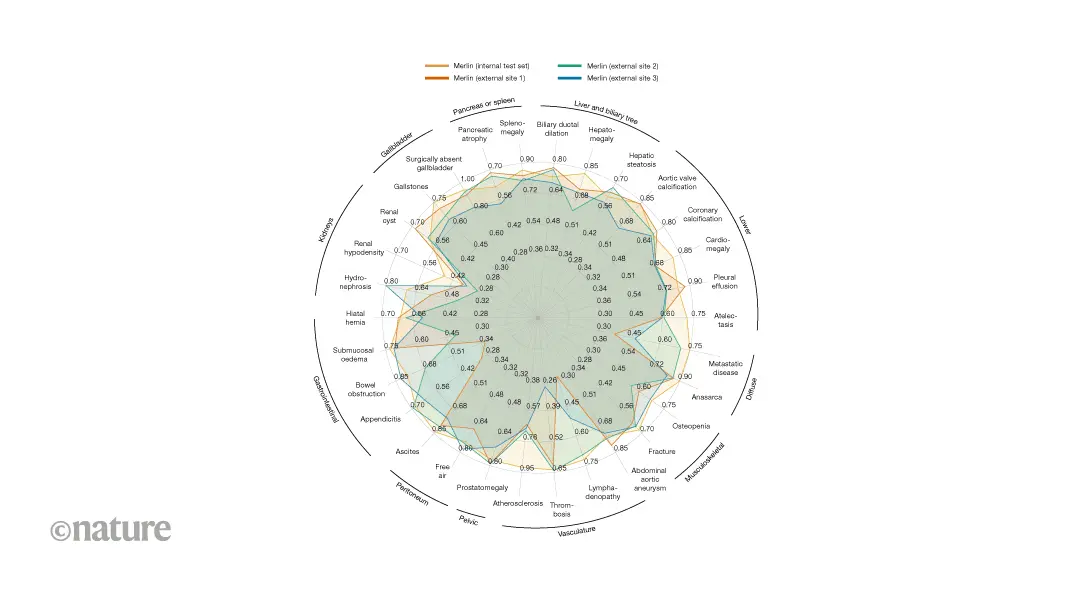AI-Driven 'Jobless Growth' Economy: A Double-Edged Sword for the Job Market
2 Sources
2 Sources
[1]
Welcome to the 'Jobless Growth' Economy
America is entering an era of "jobless growth," according to analysts at Goldman Sachs. That's not ideal for those of us who are job-reliant. It's especially not great for those who don't currently have a job, whether they have been on the market for a while or are fresh out of college and looking to get their start. But hey, at least the capital holders will still get all that growth without those pesky payroll costs! The memo, written by economists David Mericle and Pierfrancesco Mei and spotted by Fortune, warns that the current market of "modest job growth alongside robust GDP growth" is likely the new normal going forward. Most of that "robust" GDP growth will come from businesses adopting artificial intelligence, according to the analysts, with "only a modest contribution from labor supply growth due to population aging and lower immigration.†Of course, there are still plenty of people entering the job market, but they're having a rough go of things. Thus far, there has been limited evidence to suggest that, despite the hype, AI has actually displaced many workers. In fact, it's likely that Trump administration policies, including tariffs, have had more of a chilling effect on hiring broadly. But there are signs that the adoption of the technology is slowing hiring, especially for entry-level positions. Job postings for those roles are way down from last year, so while people aren't necessarily being pushed out of existing positions, the market has pulled up the ladder for people trying to get in on the lower rungs. That doesn't just suck, but is extremely short-sighted. The thing about senior roles is that you need people with experience to fill them. If the entire economy is just cutting off the pipeline for developing people who are eventually capable of filling those roles, there's going to be a bigger problem down the road when those who fill senior roles move on or age out. You don't get senior staff without first having junior staff, but maybe all these companies are just betting that AI will continue to improve to the point where they don't need to bother with humans at all. So things are bad now, but the economists say we really don't understand just how bad it is yet. “History also suggests that the full consequences of AI for the labor market might not become apparent until a recession hits," they wrote. Per Deutsche Bank researchers, the only thing currently keeping the American economy out of a recession is AI-related spending, which, according to Harvard economist Jason Furman, accounted for 92% of GDP growth in the first half of 2025. Massive amounts of money are flowing into AI investments, with the promise that there is huge potential for productivity boosts through both enterprise and consumer adoption of AI tools. That hasn't materialized even a little thus far, but the idea that it will has severely messed up the job market. One thing is for sure: AI is going to be transformative for the economy. Whether that comes in the form of productivity gains or a complete and total collapse of markets that are wildly overleveraged on AI bets that drag us into a 2008-style recession, well, we'll have to see.
[2]
As Jobs for New Grads Vanish, Execs Say AI Is Filling the Gap
It seems clear that AI is having an impact on the jobs market, mainly in the technology sector, and mostly impacting entry-level positions. A new report from Goldman Sachs confirms and expands on this trend, and also sketches out a near future where companies will see their productivity grow mainly thanks to improving AI tech, with only a small contribution from increasing their headcount. This is a "jobless growth" situation, Goldman economists David Mericle and Pierfrancesco Mei wrote in an investor note this week. What Mericle and Mei actually predicted was "modest job growth" in the coming years, even as the economy sees "robust GDP growth." This disparity implies that the solid increases in productivity aren't coming from more and more people entering the workforce -- instead something else will drive up companies' output, and that something is AI. As to why there will only be "modest" labor supply rises, the economists suggest it's a mix of "population aging and lower immigration," Fortune reported. The other effect the report highlights is that while we're seeing AI impact certain jobs, the bigger impacts and long-term structural changes to the job market won't really be visible until a recession hits. In a poor economic environment where cost cutting gets prioritized, "companies use recessions to restructure and streamline their workforce by laying off workers in less productive areas." But we'll also see AI hitting jobs more in the near future too -- Fortune notes that the share of company leaders mentioning "both AI and employment in the same context on earnings calls," has reached "historic highs." Given that the modern AI era, kicked off by OpenAI's ChatGPT, is really only a handful of years old, the use of "historic" may be overblown here. Or maybe not. Bloomberg reports that Goldman Sachs told its own staff this week that they can expect to see another round of layoffs, driven by the bank's efforts to cut costs. Goldman's also decided to "constrain headcount growth" until the end of the year. One simple way for a company -- particularly one in the financial sector -- to cut costs is AI adoption at scale, tasking new tech tools to tackle mundane duties that lower level workers may have performed beforehand. Meanwhile, sales software giant Salesforce has put a number on AI cost savings to date: $100 million, yearly. Bloomberg notes the company has been "vocal" about its own adoption of AI technology, even as it sells agent-powered AI tools to its many customers through its new Agentforce platform. The AI moves have been driven by Salesforce CEO Marc Benioff, who said recently that he'd "never been more excited about anything in my entire career." Speaking at the company's Dreamforce conference this week, Benioff said that AI tech has allowed the company to reach out to customers who'd previously have fallen through the net, with human workers not having the capacity to call them back. This means as well as saving the company millions (thanks to aggressively slashing its customer support worker numbers) AI is helping bring in more revenue. This combo is exactly the kind of benefit AI evangelists promise the technology can deliver if it's applied carefully. What's the lesson here for your company? You may see these different headlines as a solid thumbs-up for the potential benefits of deploying AI technology across your own enterprise, in search of some of those promised savings and worker productivity boosts. Salesforce's example is particularly eye-catching. But remember: this company is a sales-focused software outfit that is deploying carefully developed AI tools it's in control of throughout its own sales-centric operation. This is a reminder that you need to very carefully choose which third-party AI tools you're using, and make certain you're deploying them in the right way in the right places in your operation. The other takeaway is that you'll likely see some dramatic shifts in the talent pool when you're looking to hire new staff members, both because there may be more people looking for entry level work than before, and also over the longer term as AI begins to reshape the job market.
Share
Share
Copy Link
Goldman Sachs economists predict an era of 'jobless growth' driven by AI adoption, leading to robust GDP growth but modest job creation. This trend is already impacting entry-level positions and raising concerns about long-term economic consequences.

The Rise of 'Jobless Growth'
Economists at Goldman Sachs have introduced a new term that could define the future of the American economy: 'jobless growth.' This concept, outlined in a memo by David Mericle and Pierfrancesco Mei, suggests that the U.S. is entering an era where robust GDP growth will be accompanied by only modest job creation
1
2
.The primary driver behind this economic shift is the widespread adoption of artificial intelligence (AI) technologies across various industries. While AI promises significant productivity boosts, it also raises concerns about its impact on the job market, particularly for entry-level positions and new graduates.
AI's Impact on Employment
Despite the hype surrounding AI, there has been limited evidence of large-scale worker displacement thus far. However, signs of its influence on hiring practices are becoming increasingly apparent:
- Job postings for entry-level positions have significantly decreased compared to the previous year
1
. - Companies are reporting historic highs in mentioning both AI and employment in the same context during earnings calls
2
. - Major corporations like Goldman Sachs are implementing layoffs and constraining headcount growth, potentially driven by AI adoption
2
.
The Salesforce Example
Salesforce, a leading sales software company, has become a poster child for the potential benefits of AI adoption. The company reports:
- Annual cost savings of $100 million through AI implementation.
- Increased revenue by reaching out to previously neglected customers.
- Aggressive reduction in customer support worker numbers
2
.
Related Stories
Long-term Economic Implications
While the immediate effects of AI on the job market are becoming visible, economists warn that the full consequences may not be apparent until a recession hits. The Goldman Sachs memo suggests that companies often use economic downturns to restructure and streamline their workforce, potentially accelerating AI-driven job displacement
1
2
.Moreover, the current economic stability appears to be heavily reliant on AI-related spending. Harvard economist Jason Furman estimates that 92% of GDP growth in the first half of 2025 was attributed to AI investments
1
.Challenges and Considerations
The shift towards a 'jobless growth' economy presents several challenges:
- Reduced opportunities for skill development and career progression, particularly for new graduates and entry-level workers.
- Potential long-term shortage of experienced professionals as the pipeline for developing senior staff is disrupted.
- Risk of market instability due to overleveraged AI investments, potentially leading to a recession similar to the 2008 financial crisis
1
.
As companies navigate this new landscape, careful consideration must be given to the implementation of AI technologies and their impact on workforce development and long-term economic stability.
References
Summarized by
Navi
[1]
Related Stories
AI's Impact on Entry-Level Jobs: A Growing Concern for Recent Graduates
30 Jul 2025•Business and Economy

AI's Impact on the Job Market: More Retraining Than Layoffs, For Now
05 Sept 2025•Business and Economy

AI's Impact on Entry-Level Jobs: A Growing Challenge for Recent Graduates
08 Aug 2025•Business and Economy

Recent Highlights
1
OpenAI secures $110 billion funding round from Amazon, Nvidia, and SoftBank at $730B valuation
Business and Economy

2
Trump bans Anthropic from government as AI companies clash with Pentagon over weapons and surveillance
Policy and Regulation

3
ChatGPT Health fails to recognize half of medical emergencies in first independent safety test
Health





